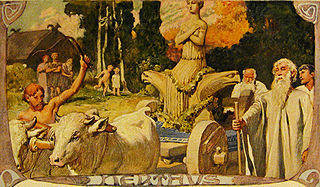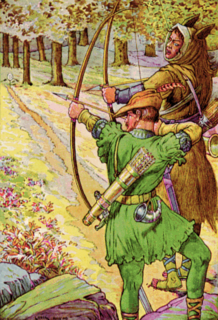Aborigine, aborigine or aboriginal may refer to:

Australian Aboriginal religion and mythology is the sacred spirituality represented in the stories performed by Aboriginal Australians within each of the language groups across Australia in their ceremonies. Aboriginal spirituality includes the Dreamtime, songlines, and Aboriginal oral literature.

Menehune are a mythological race of dwarf people in Hawaiian tradition who are said to live in the deep forests and hidden valleys of the Hawaiian Islands, hidden and far away from human settlements.

The Morton National Park is a 199,745-hectare (493,580-acre) national park located in the Southern Highlands, South Coast and Illawarra regions of New South Wales, Australia, situated approximately 170 kilometres (110 mi) south southwest of Sydney.

Germanic mythology consists of the body of myths native to the Germanic peoples, including Norse mythology, Anglo-Saxon mythology, and Continental Germanic mythology. It was a key element of Germanic paganism.
Spanish mythology refers to the sacred myths of the cultures of Spain. They include Galician mythology, Asturian mythology, Cantabrian mythology, Catalan mythology, Lusitanian mythology and Basque mythology. They also include the myths and religions of the Celts, Celtiberians, Iberians, Milesians, Carthaginians, Suebi, Visigoths, Spaniards and Roman and Greek mythology.

Kakuru is a genus of theropod dinosaur from the early Cretaceous Period.
The Yara-ma-yha-who is a legendary creature found in Australian Aboriginal mythology. According to legend, the creature resembles a little red frog-like man with a very big head, a large mouth with no teeth and suckers on the ends of its hands and feet.

Breton mythology is the mythology or corpus of explanatory and heroic tales originating in Brittany. The Bretons are the descendants of insular Britons who settled in Brittany from at least the third century. While the Britons were already Christianised in this era, the migrant population maintained an ancient Celtic mythos, similar to those of Wales and Cornwall.

European folklore or Western folklore refers to the folklore of the Western world, especially when discussed comparatively. The history of Christendom during the European Middle Ages and the Early Modern period has resulted in a number of traditions that are shared in many European ethnic and regional cultures.

Sacred site, sacred ground, sacred space,holy ground, or holy place refers to a location which is deemed to be sacred or hallowed. This may be a natural feature or granted through a blessing. One or more religions may consider these locations to be of special significance. Often, such locations either are or become the home of sanctuaries, shrines, places of worship, or locations conducive to meditation. Regardless of construction or use, these areas may have a variety of ritual or taboo associations including limitations on visitors or allowed actions within the space. Such places may be the focus of pilgrimage, drawing pilgrims from great distances, or simply locations of significance for the local populace.

In mythology and the study of folklore and religion, a trickster is a character in a story who exhibits a great degree of intellect or secret knowledge and uses it to play tricks or otherwise disobey normal rules and defy conventional behavior.

Norse or Scandinavian mythology is the body of myths of the North Germanic peoples, stemming from Norse paganism and continuing after the Christianization of Scandinavia, and into the Scandinavian folklore of the modern period. The northernmost extension of Germanic mythology and stemming from Proto-Germanic folklore, Norse mythology consists of tales of various deities, beings, and heroes derived from numerous sources from both before and after the pagan period, including medieval manuscripts, archaeological representations, and folk tradition.

The Warkawarka, also called Weki Weki, were an Australian Aboriginal group whose traditional lands are located in Victoria, Australia. Controversy exists as to whether they were an independent 'tribe' or rather consisted of a subgroup of the Wergaia, the latter view being shared by both Robert M. W. Dixon and Luise Hercus.











